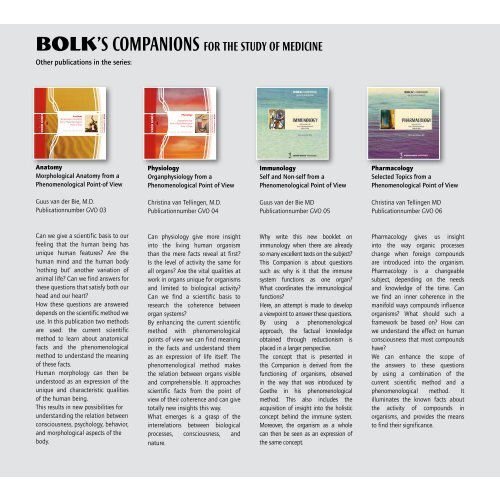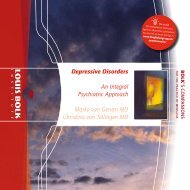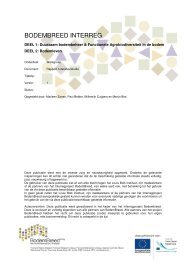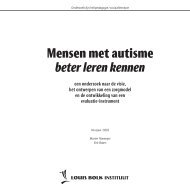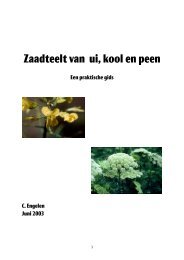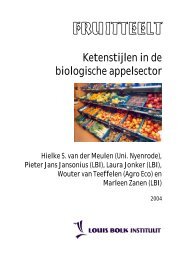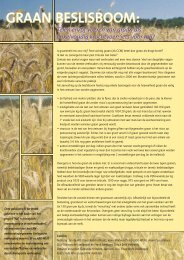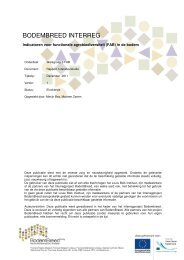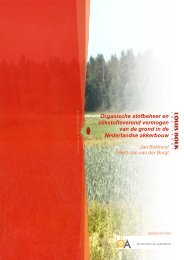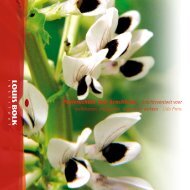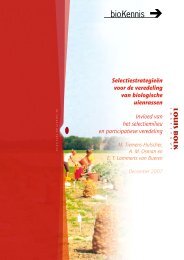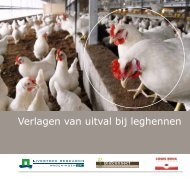Respiratory System Disorders and Therapy From a New - Louis Bolk ...
Respiratory System Disorders and Therapy From a New - Louis Bolk ...
Respiratory System Disorders and Therapy From a New - Louis Bolk ...
You also want an ePaper? Increase the reach of your titles
YUMPU automatically turns print PDFs into web optimized ePapers that Google loves.
Anatomy<br />
BOLK’S COMPANIONS FOR THE STUDY OF MEDICINE<br />
Other publications in the series:<br />
I N S T I T U T E<br />
Physiology<br />
Can physiology give more insight into<br />
the living human organism than the<br />
mere facts reveal at first? Is the level of<br />
activity the same for all organs? Are the<br />
vital qualities at work in organs unique<br />
for organisms <strong>and</strong> limited to biological<br />
activity? Can we find a scientific basis to<br />
Anatomy research the coherence between organ<br />
systems?<br />
Morphological Anatomy<br />
from a Phenomenological By enhancing the current scientific<br />
method with phenomenological points of<br />
Point of View view we can find meaning in the facts<br />
<strong>and</strong> underst<strong>and</strong> them as an expression of<br />
life itself. The phenomenological method<br />
makes the relation between organs<br />
Guus van der Bie visible MD <strong>and</strong> comprehensible. It<br />
approaches scientific facts from the<br />
point of view of their coherence <strong>and</strong> can<br />
give totally new insights this way.<br />
What emerges is a grasp of the interrelations<br />
between biological processes,<br />
consciousness, <strong>and</strong> nature.<br />
Anatomy<br />
Morphological Anatomy from a<br />
Phenomenological Point-of View<br />
Guus van der Bie, M.D.<br />
Publicationnumber GVO 03<br />
the natural source of knowledge<br />
Can we give a scientific basis to our<br />
feeling that the human being has<br />
unique human features? Are the<br />
human mind <strong>and</strong> the human body<br />
‘nothing but’ another variation of<br />
animal life? Can we find answers for<br />
these questions that satisfy both our<br />
head <strong>and</strong> our heart?<br />
How these questions are answered<br />
depends on the scientific method we<br />
use. In this publication two methods<br />
are used: the current scientific<br />
method to learn about anatomical<br />
facts <strong>and</strong> the phenomenological<br />
method to underst<strong>and</strong> the meaning<br />
of these facts.<br />
Human morphology can then be<br />
understood as an expression of the<br />
unique <strong>and</strong> characteristic qualities<br />
of the human being.<br />
This results in new possibilities for<br />
under st<strong>and</strong>ing the relation between<br />
consciousness, psychology, behavior,<br />
<strong>and</strong> morphological aspects of the<br />
body.<br />
BOLK’S COMPANIONS<br />
FOR THE STUDY OF MEDICINE<br />
Physiology<br />
I N S T I T U T E<br />
Physiology<br />
Organphysiology<br />
from a Phenomenological<br />
Point of View<br />
Christina van Tellingen MD<br />
Physiology<br />
Organphysiology from a<br />
Phenomenological Point of View<br />
Christina van Tellingen, M.D.<br />
Publicationnumber GVO 04<br />
Can physiology give more insight<br />
into the living human organism<br />
than the mere facts reveal at first?<br />
Is the level of activity the same for<br />
all organs? Are the vital qualities at<br />
work in organs unique for organisms<br />
<strong>and</strong> limited to biological activity?<br />
Can we find a scientific basis to<br />
research the coherence between<br />
organ systems?<br />
By enhancing the current scientific<br />
method with phenomenological<br />
points of view we can find meaning<br />
in the facts <strong>and</strong> underst<strong>and</strong> them<br />
as an expression of life itself. The<br />
phenomenological method makes<br />
the relation between organs visible<br />
<strong>and</strong> comprehensible. It approaches<br />
scientific facts from the point of<br />
view of their coherence <strong>and</strong> can give<br />
totally new insights this way.<br />
What emerges is a grasp of the<br />
interrelations between biological<br />
processes, consciousness, <strong>and</strong><br />
nature.<br />
BOLK’S COMPANIONS<br />
FOR THE STUDT OF MEDICINE<br />
Immunology<br />
Self <strong>and</strong> Non-self from a<br />
Phenomenological Point of View<br />
Guus van der Bie MD<br />
Publicationnumber GVO 05<br />
Why write this new booklet on<br />
immunology when there are already<br />
so many excellent texts on the subject?<br />
This Companion is about questions<br />
such as: why is it that the immune<br />
system functions as one organ?<br />
What coordinates the immunological<br />
functions?<br />
Here, an attempt is made to develop<br />
a viewpoint to answer these questions.<br />
By using a phenomenological<br />
ap proach, the factual knowledge<br />
obtained through reductionism is<br />
placed in a larger perspective.<br />
The concept that is presented in<br />
this Companion is derived from the<br />
functioning of organisms, observed<br />
in the way that was introduced by<br />
Goethe in his phenomenological<br />
method. This also includes the<br />
acquisition of insight into the holistic<br />
concept behind the immune system.<br />
Moreover, the organism as a whole<br />
can then be seen as an expression of<br />
the same concept.<br />
Pharmacology<br />
Selected Topics from a<br />
Phenomenological Point of View<br />
Christina van Tellingen MD<br />
Publicationnumber GVO 06<br />
Pharmacology gives us insight<br />
into the way organic processes<br />
change when foreign compounds<br />
are introduced into the organism.<br />
Pharmacology is a changeable<br />
subject, depending on the needs<br />
<strong>and</strong> knowledge of the time. Can<br />
we find an inner coherence in the<br />
manifold ways compounds influence<br />
organisms? What should such a<br />
framework be based on? How can<br />
we underst<strong>and</strong> the effect on human<br />
consciousness that most compounds<br />
have?<br />
We can enhance the scope of<br />
the answers to these questions<br />
by using a combination of the<br />
current scientific method <strong>and</strong> a<br />
phenomenological method. It<br />
illuminates the known facts about<br />
the activity of compounds in<br />
organisms, <strong>and</strong> provides the means<br />
to find their significance.


